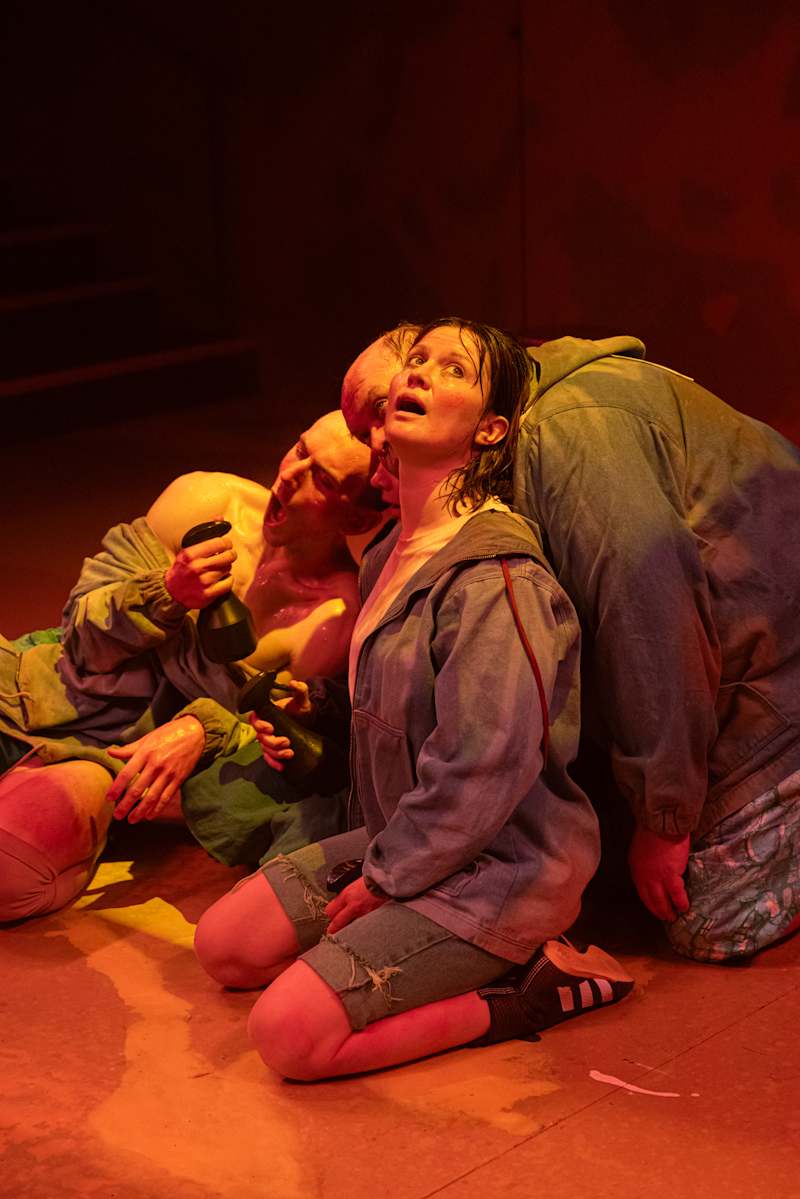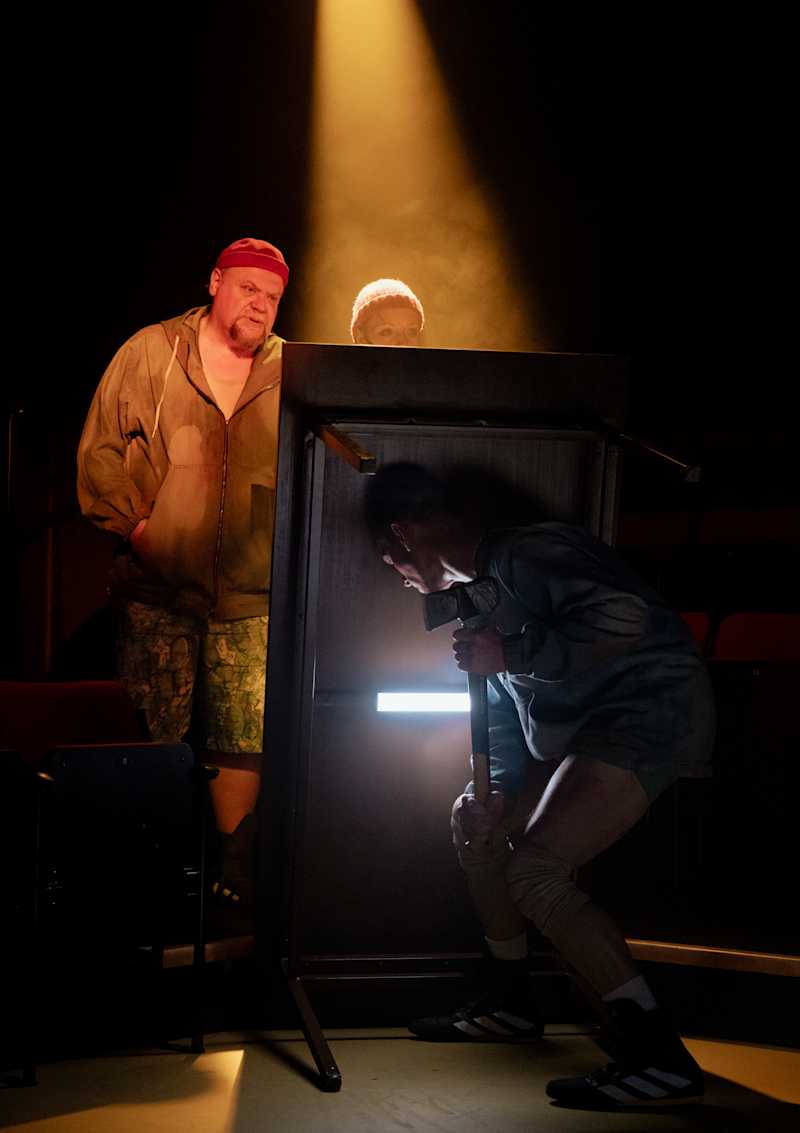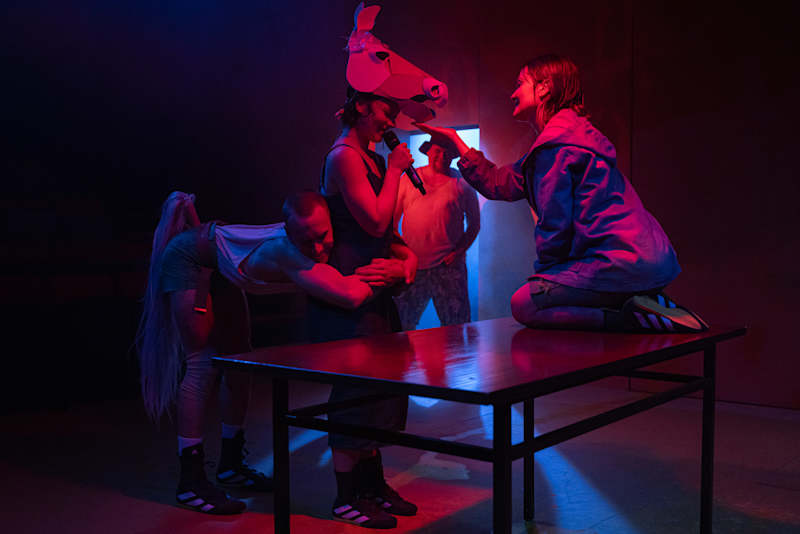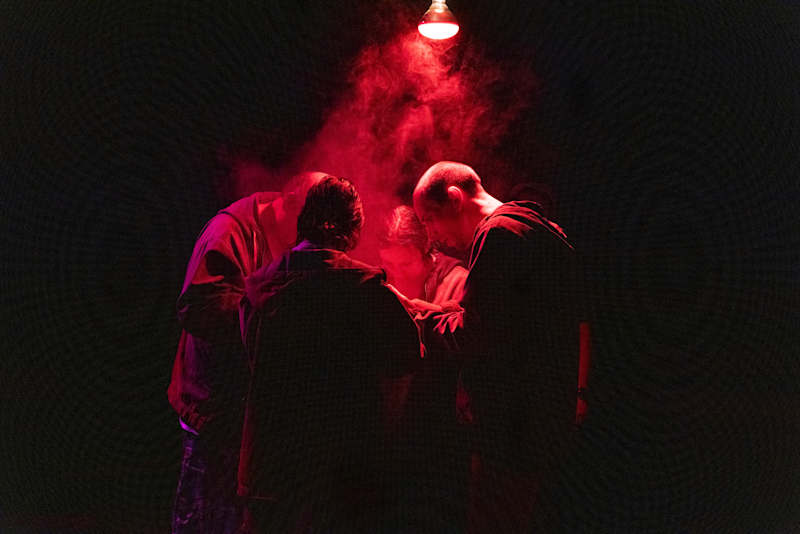Cuts drove a Helsinki theatre to look for annual donors – nearly 50 patrons signed up

A middle-aged man working in IT and dozens of other individuals became annual donors to a Helsinki theatre.
– Are you a goddamn artist? Hey everybody, there’s an artist here.
In the new adaptation, Raskolnikov, a poor high school graduate who ends up murdered, is an art student whose life is in a downward spiral. Culture is being cut back and the consequences are severe.
– Raskolnikov is driven to extremes by poverty and desperation, and it hasn’t gone away. Unfortunately, Raskolnikovs are and will be born out of necessity,” says actor Hannu-Pekka Björkman.
In the original * crime and punishment * Raskolnikov uses his ax for a ruthless lien. Who is the coronary to interpret Q-Theater?
– He represents something that today’s viewers recognize. I want to keep it a secret because now I no longer be in St. Petersburg in the mid-19th century. It will be a surprise, says Hannu-Pekka Björkman mysteriously.
In the right life, the government’s cultural cuts made the Q-Theater on this year’s budget of well over 11 % and nearly € 80,000. So the Q-theater decided to find private supporters.
The theater started a mesenate campaign in January. It applied for people who are ready to donate $ 200 or € 1,000 a year to the theater.
So far, almost 50 annual donors have registered, with support for almost € 30,000 to the theater cash. It paid one actor’s salary for one production.
Cuts provoke donations
– Some have also donated a larger or twice as requested amount to our honeycomb campaign, says Aittakumpu.
-I’m an average audience: a middle-aged man who once dared to go to the theater and said that this is great.
The cuts in the government’s culture were the provocative of Kallberg to become an annual donor.
\”The cut from such actors is of no use to the state economy, but there will certainly be disadvantages,\” says Kallberg.
According to Kallberg, the theater should be financed by tax money and could pay more taxes for it.
– That wouldn’t be a problem. But when it doesn’t seem to be possible now, mesenization is the second best option. I’m not happy to have come to this, but this seems to be.

“I think of it more as a drop”
-I was excited that the Q-Theater went to such a campaign. It is clear that in these times, when there is a shortage of financial resources, new means need to be invented.
\”Culture and art must definitely be funded from the state, cities and municipal budgets, but it is good to use private cash flows,\” says Harlas.
Ilona Kangas thinks that the most effective funding could be a combination of public and private money.
In the opinion of Kangas, donations alone would not be able to run theater activities. However, it is volunteering and cannot be relying on the continuation of support.
– I rather think of this as a tip: I like the service and what this great art form produces me. For example, it is good if more unemployed people can see the theater with this money, says Kangas.

Private patrons are few and far between
– It could have more potential if donation culture became a wider phenomenon in Finland.
Paavolainen emphasizes that public funding ensures the long -term freedom of art and the activity. Future productions will be difficult to plan if you cannot be sure of financing next year.
\”Donations can be part of the whole, but it would be a terrible pity if we were just going to American -style honeymooning,\” Paavolainen says.
He thinks that it could also influence the content of art: there is a risk that donors would only support certain art.

“The state cannot forget its patronage”
Actor Hannu-Pekka Björkman points out that there were already Renaissance in Europe. Also in Finland, when creating a cultural fund, money was raised, including the rural mistresses and hosts.
– They felt that Finnish culture was also their business. And it has produced great results.
However, Björkman thinks that not everything can be counted on private money.
– The state cannot forget that it is also a punch. If it wants to maintain national culture, it cannot only be put on the shoulders of private people. But private people can be very grateful: they seem to be high in culture and art, says Björkman.
*Crime and punishment premiere 19.2. at the Q-Theater in Helsinki.*

